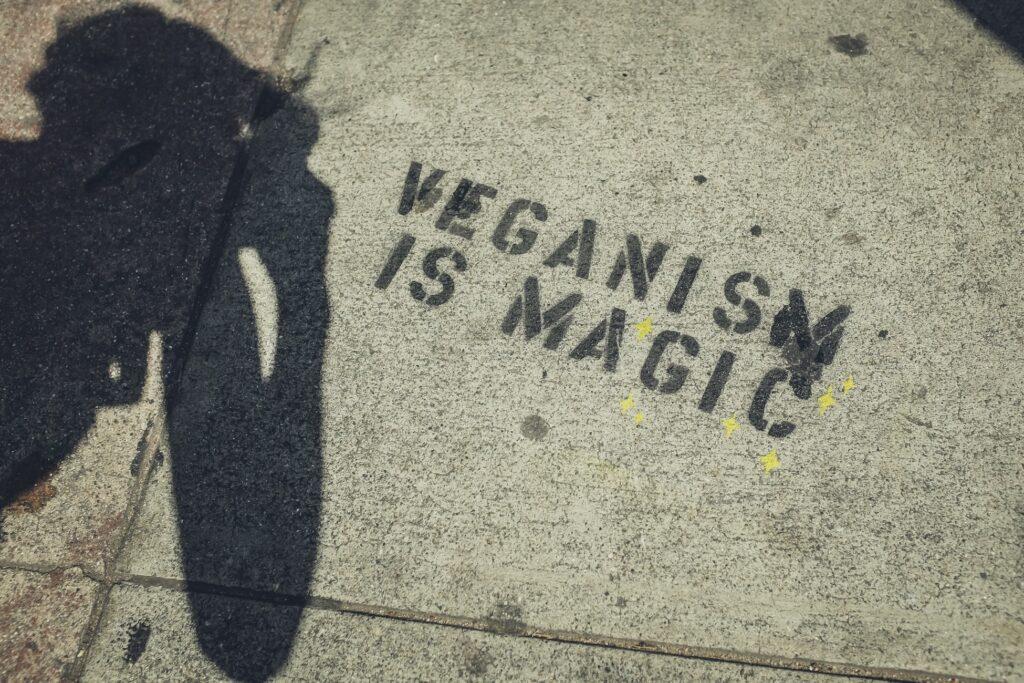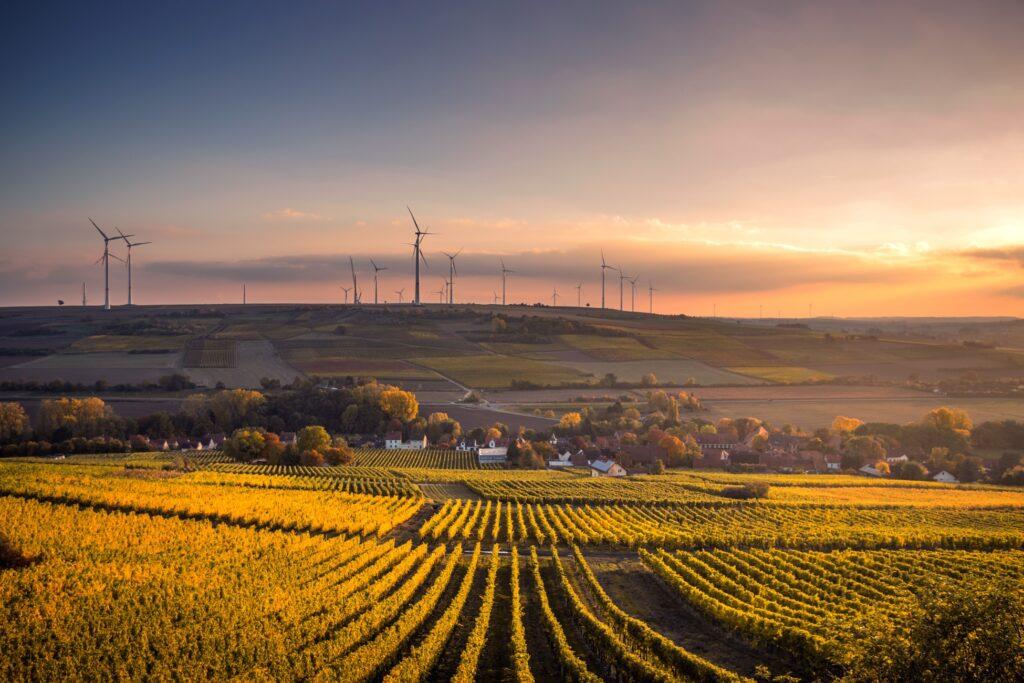Veganism around the world is growing more rapidly than ever before. In the United States over the past 3 years alone, the number of vegans has grown from 0.5 percent to 6 percent of the population, and it shows no signs of slowing down!
In this article, we’ll explore what veganism is and how it can help you and the environment.
What is Veganism?
According to the Vegan Society, “veganism is a way of living which seeks to exclude, as far as is possible and practicable, all forms of exploitation of, and cruelty to, animals for food, clothing or any other purpose.

Put simply, veganism is the rejection of the consumption and use of animals and animal-based products. To be a vegan means that you don’t eat animal meat or consume animal-derived products, such as eggs or dairy, but it also means that you don’t purchase or wear leather, wool, or fur.
Veganism is becoming increasingly more prevalent. You’ll find vegan restaurants all over the world, especially in major cities. Big restaurant chains are also adding options. Papa Johns, Gregg’s, KFC, McDonalds, and Burger King have all added, or are in the process of adding, a vegan option that’s not salad, to their menus.
That’s not to say that being vegan in today’s world is the easiest lifestyle to follow, but it’s definitely worth it.
How Veganism Helps the Environment

Veganism around the world is growing more rapidly than ever before. In the United States over the past 3 years alone, the number of vegans has grown from 0.5 percent to 6 percent of the population, and it shows no signs of slowing down!
In this article, we’ll explore what veganism is and how it can help you and the environment.
What is Veganism?
According to the Vegan Society, “veganism is a way of living which seeks to exclude, as far as is possible and practicable, all forms of exploitation of, and cruelty to, animals for food, clothing or any other purpose.

Put simply, veganism is the rejection of the consumption and use of animals and animal-based products. To be a vegan means that you don’t eat animal meat or consume animal-derived products, such as eggs or dairy, but it also means that you don’t purchase or wear leather, wool, or fur.
Veganism is becoming increasingly more prevalent. You’ll find vegan restaurants all over the world, especially in major cities. Big restaurant chains are also adding options. Papa Johns, Gregg’s, KFC, McDonalds, and Burger King have all added, or are in the process of adding, a vegan option that’s not salad, to their menus.
That’s not to say that being vegan in today’s world is the easiest lifestyle to follow, but it’s definitely worth it.
How Veganism Helps the Environment

With fires rapidly burning in Australia and the capital of Indonesia sinking under flash flood waters, you might feel like the only way to help the world and combat climate change is through monetary donations.
However, you can also make a difference with a simple lifestyle change.
You’ve probably heard a lot about your carbon footprint lately. People are protesting flights and making the transition to alternative energy, but yet to be discussed is how a diet change can help the environment.
The Smithsonian Magazine, using the United Nation’s extensive report, gathered some astonishing facts about the environmental impact of animal agriculture, which is powered and supported by those who consume animal products (even vegetarians who still eat dairy and cheese). Here are some of the most jaw-dropping facts:
- 26 percent of the earth’s land is used for livestock
- ⅓ of the earth’s land is used to grow crops for livestock
- 70 percent of Brazil’s deforested land is used for pasture while much of the remainder is used to grow crops to feed the livestock
- 23% of water in Botswana is used by the livestock industry
- 18% of greenhouse gas emissions around the world are caused by the livestock industry
- “In the United States, livestock production is responsible for 55 percent of erosion, 37 percent of all applied pesticides and 50 percent of antibiotics consumed, while the animals themselves directly consume 95 percent of our oat production and 80 percent of our corn.”
And this is just on land! Studies have also shown that there could be fishless seas as early as 2048 due to overfishing.
Factory Farming: Everything You Need to Know
https://www.ecowatch.com/what-is-factory-farming.html
So how can a vegan diet help the environment?

According to researchers at Oxford University, transitioning to a vegan diet could cut your carbon footprint by as much as 73 percent. Because you’re saying no to animal products, you are no longer financially supporting deforestation, overfishing, pollutants caused by livestock farming, or the use of antibiotics that contaminate soil and waterways.
Beyond these amazing environmental benefits, veganism also helps to stabilize the oceans by helping to prevent ocean acidification. Furthermore, veganism helps prevent deforestation, particularly of rainforests, because your diet now requires a great deal less land use. Finally, veganism can help clean the air by reducing air pollution. The US Environmental Defense Fund estimated that “if every American swapped one meal of chicken for a vegetarian alternative each week, the reduction in carbon dioxide would be the same as taking more than half a million cars off the road.”
It’s amazing how much difference your diet can make.
Immediate Benefits of a Vegan Diet
One of the most recent documentaries that promotes veganism for the health benefits, Game Changers, interviewed the strongest man in the world, Patrik Baboumian, who also happens to be vegan.

Something he said got people’s attention, “People ask how you can get strong as an ox, without eating meat. And I said, have you ever seen an ox eat meat?”

But strength isn’t the only benefit to veganism. Here’s a few more things you might not realize that are benefits of a vegan diet that are backed by academic research:
- Improved micronutrients absorption (and protein and B12)
- Reduced risk of cancer, especially colon cancer
- Lower blood sugar levels
- Reduced risk of kidney failure
- Lowered risk of heart disease
- Weight loss (if you follow a plant-based diet)
- Lowered cholesterol
- Improved physical fitness
- Improved diabetes management
- Reduced arthritis pain
How a Vegan Diet Can Help End World Hunger

To understand how a vegan diet can help end world hunger, we can look back at our high school education when we learned about energy flow through ecosystems.
Consider a cow eating grass. The grass makes its own energy through photosynthesis and then to get energy, the cow eats the grass because a cow cannot photosynthesize. Next, a human slaughters that cow and eats its flesh. The human gets the energy from the cow. However, the key takeaway is that as we get further away from the origin of the energy (the grass) we lose energy. So by the time a human eats the cow, they’ve consumed less energy than they would have had they just eaten a plant in the first place.
It’s as if you took a gallon of gasoline and replaced a cup of it with water before putting it into your car. Evidently, your car won’t run as well.
So what does this have to do with world hunger?
Researchers at the University of Minnesota’s Institute on the Environment found that 53 percent of all plant protein being grown in the world is fed to animals. This plant protein, which could go to starving people around the world, is used to feed animals. These animals don’t produce as many calories as the original plant protein would have. It takes about 13 pounds of grain to create a pound of meat. A lot more people can be fed with 13 pounds of grain than one pound of meat.
The more people who transition to a vegan diet, the more awareness is called to this issue. Supporting programs that help end hunger through vegan meals are the ones that are making the most of your donations and truly have a shot at beating starvation.
Where Can I Learn More About Veganism?

There are so many amazing resources about veganism out there and some of the best come in film and documentary form. These are divided into three categories: ethical, environmental, and health.
Ethical Reasons to Go Vegan
Environmental Benefits of Veganism
- Cowspiracy
- Before the Flood
- The End of Meat
- Racing Extinction
- Meathooked and End of Water – An episode of HBO’s Vice
Health Benefits of Veganism
Ready to Go Vegan?
Now that you know more about the immediate and long-term effects of veganism, transition your diet today and keep reading to learn more about how you can help make a better world.
Please consider supporting our work
You Can Help!


Paul Rodney Turner
Co-founded Food for Life Global in 1995, now known as Food Yoga International. He is a former monk, a keynote speaker, a veteran of the World Bank, social entrepreneur, holistic life coach, and the author of 6 books, including FOOD YOGA, and The 7 Maxims for Soul Happiness.
Mr. Turner has traveled to 72 countries over the last 40 years helping to establish Food Yoga projects, train volunteers, and spread the message of uniting the world with pure food.




